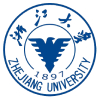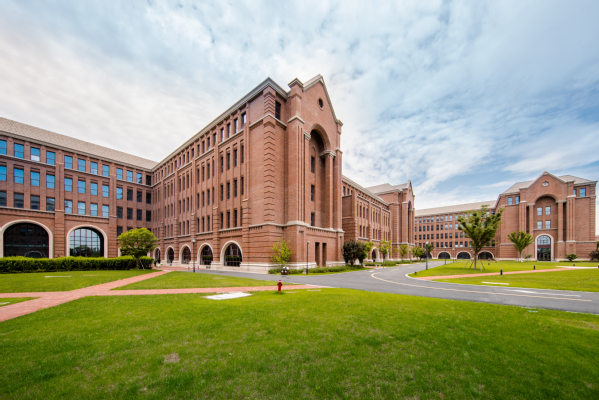866 Yuhangtang Road, Hangzhou 310058, P. R. China
Career Counselling

Zhejiang University is one of the oldest institutions of higher education in China, and is renowned for its quality of education and research. Located primarily in Hangzhou, it is one of the highest ranked Chinese Universities. It is home to over 60,000 students from 140 different countries, with approximately 10% international and 45% undergraduate students.
The academic organization chart of the University is simple: 7 Faculties (Arts and Humanities, Social Sciences, Science, Engineering, Information Technology, Agriculture, Life and Environment Sciences, and Medici...
| Establishment year | 1897 |
| Total Students | 60,739 |
| International Students | 5,596 |
| QS World University Rankings 2024 | =44 |
| Campus Size | 1,538 acres |
| Total Number of Campuses | 7 |
| University Website | https://www.zju.edu.cn/english/ |
| No. of Schools and Divisions | 7 Faculties (Arts and Humanities, Social Sciences, Science, Engineering, Information Technology, Agriculture, Life and Environment Sciences, Medicine and Pharmaceutical Sciences) |
| Nobel Prize Winner Alumni | 1 (Tsung Dao Lee) |
| No. of Education Programs | 133 (undergraduate), 300+ (Master’s), 200+ (PhD) |
| Student to Faculty ratio | 14.5:1 |
Zhejiang University offers undergraduate and postgraduate courses through 7 Faculties, which are further subdivided into 36 Schools, Colleges, and Departments.
Academic support is provided to these Faculties through 5 on-campus libraries with almost 8 million total volumes, 7 affiliated hospitals, and 2 international joint institutes.
Undergraduate international applicants to Zhejiang University must satisfy the following requirements:
Postgraduate international applicants must satisfy most of the above requirements (except for the maximum age criterion). Submission of GRE scores is not compulsory, but it is strongly recommended. Applicants to Chinese medium courses must have an HSK Level 5 certificate, and candidates applying to English medium programs must have a TOEFL score of at least 90, or an IELTS score of at least 6.5.
All applications by international students must be submitted online through the dedicated university portal. The following documents must be uploaded as part of the admission process:
Once the application is submitted online, shortlisted candidates are informed of next steps by the University. Some courses require shortlisted applicants to pass an entrance test, while others require an online interview or an audition. Once the final offer is made to successful candidates, paying tuition fees for the first year is required to confirm joining. For postgraduate students, admission notices are sent out in batches starting from the end of July every year.
Tuition fees for undergraduate courses at ZJU vary widely by course type and medium of instruction. Courses taught in Chinese have maximum annual course fees of RMB 29,800 (USD 4,370). Courses taught in English have tuition fees ranging from RMB 42,800 (USD 6,276) per year, for the MBBS degree, to RMB 65,000 (USD 9,531) per year, for the Global Communication and Management course, to RMB 80,000 (USD 11,730) per year, for all Engineering degrees. The highest undergraduate tuition fees are linked to the Dual Degree Programs in the Haining campus, at RMB 200,000 (USD 29,436) per year.
All applicants must pay a non-refundable application fee of RMB 800 (117 USD). International students at Zhejiang University also have to pay annual medical insurance fees of RMB 800.
Tuition fees for postgraduate international students vary according to the course. For example, Master’s degrees in philosophy, literature, and history are associated with course fees of RMB 22,800 (USD 3,343) per year. The majority of degrees (e.g. Economics, Law, Engineering, Agriculture, and Business) have annual course fees of RMB 28,800 (USD 4,223). Master’s degrees in Medical Science, Art, and Physical Education are priced at RMB 32,800 (USD 4,809) per year. Students who are studying courses in English (rather than in Chinese) must pay an additional amount of RMB 8,000 (USD 1,173) per year.
Accommodation fees vary according to the type of dormitory chosen; the living costs typically range from 24,000 RMB to 48,000 RMB per year per room.

Zhejiang University has seven campuses. The main Zijingang campus is located in the city of Hangzhou, and houses most of the undergraduate and postgraduate courses, and a majority of the research and administrative buildings of 11 Schools. The green Yuquan campus houses most courses within the Faculty of Engineering. The historic Xixi campus, that once housed Hangzhou University, is now home to many humanities departments. The Huajiachi campus contains continuing and vocational education facilities. Guanghua Law School is housed in the Zhijiang campus. Zhoushan, a campus located inside an island city, is home to the Ocean College. Finally, the Haining campus is located in a provincial city near Hangzhou and Shanghai, and offers international education courses.
Zhejiang University has over 160 student clubs and organizations, and supports character growth inside and outside the classroom by bringing together students with shared interests. The Student Union is the apex body that gives students a voice in the administration of the University. It conducts several large annual events, and provides a great avenue for students to hone their leadership skills while they are still in college.
There are many different categories of student organizations at Zhejiang University. Academic Associations organize summits with prominent industry professionals in the areas of Finance, Human Resources, and Marketing. Other clubs cater to special interest groups related to music, arts, sports, languages, region-specific cultures, and innovation and entrepreneurship.
The campuses of Zhejiang University contain several cafes, restaurants, social areas, and fitness and sports facilities. The Gymnasiums located in all seven campuses serve as the hub for fitness activities, from individual workouts to group exercise sessions. These Gymnasiums also contain indoor sports facilities and courts, from badminton to basketball, and table tennis to swimming pools.

Additional sports, exercise, and dance facilities are available at the Student Services Center in the main campus. Outdoor sports facilities are also available at all locations, including a massive stadium in the Zijingang campus that can be used to host large soccer matches.
Zhejiang University places emphasis on career readiness and job placements. Almost every department has its own dedicated career cell to prepare students for long term opportunities. The process starts with one-on-one career counseling sessions that students can attend from their first year onwards. These are very useful to spread awareness of the different job and research options available. The online career portal contains several automated tools that allow students to improve their resumes and receive feedback on their interview presence and communication skills. Senior students have access to alumni and industry mentors; these help bridge the gap between the corporate world and academia. Regular workshops and seminars are organized to help students meet their potential future colleagues. Candidates can also access the best internships and job opportunities via the online portal and on-campus job fairs and placement processes. Finally, accredited career professionals are always available to provide students with additional guidance and customized resume building advice.
The main scholarships for undergraduate international students at ZJU are the Chinese Government Scholarship and the Zhejiang Government Scholarship. These must be applied to separately - for example, the window for the Chinese Government Scholarship is between January and April of the year in which a candidate wishes to enter the program. The funding amount is substantial - the Zhejiang Government Scholarship is associated with a financial award of RMB 20,000, which amounts to almost a complete year’s tuition fee for most courses. There are also awards specific to certain Departments e.g. the Lead Scholarship for new MBBS students awards 20,000 RMB, and applicants are automatically considered for this based on academic excellence.
Postgraduate international students have a wider pool of scholarships to apply to; the most prestigious of which is the Chinese Government Scholarship - Type B. The process for award of this scholarship is long and complex, entailing a separate application and a video interview. Selected candidates (based on overall academic and extracurricular excellence as well as interview performance) are given a complete tuition fee waiver for the duration of their program, and all living costs are taken care of. An additional stipend and medical insurance are also provided.
